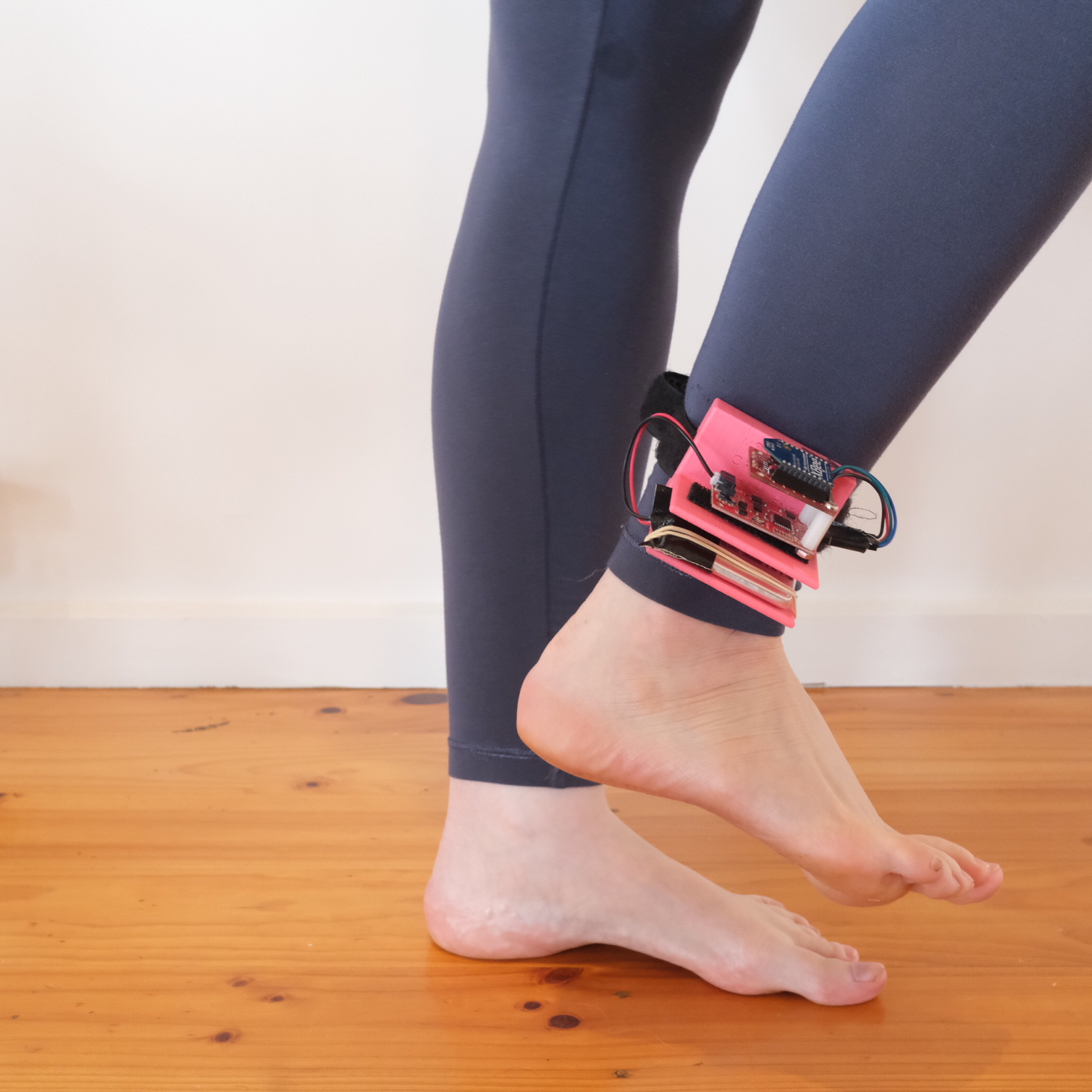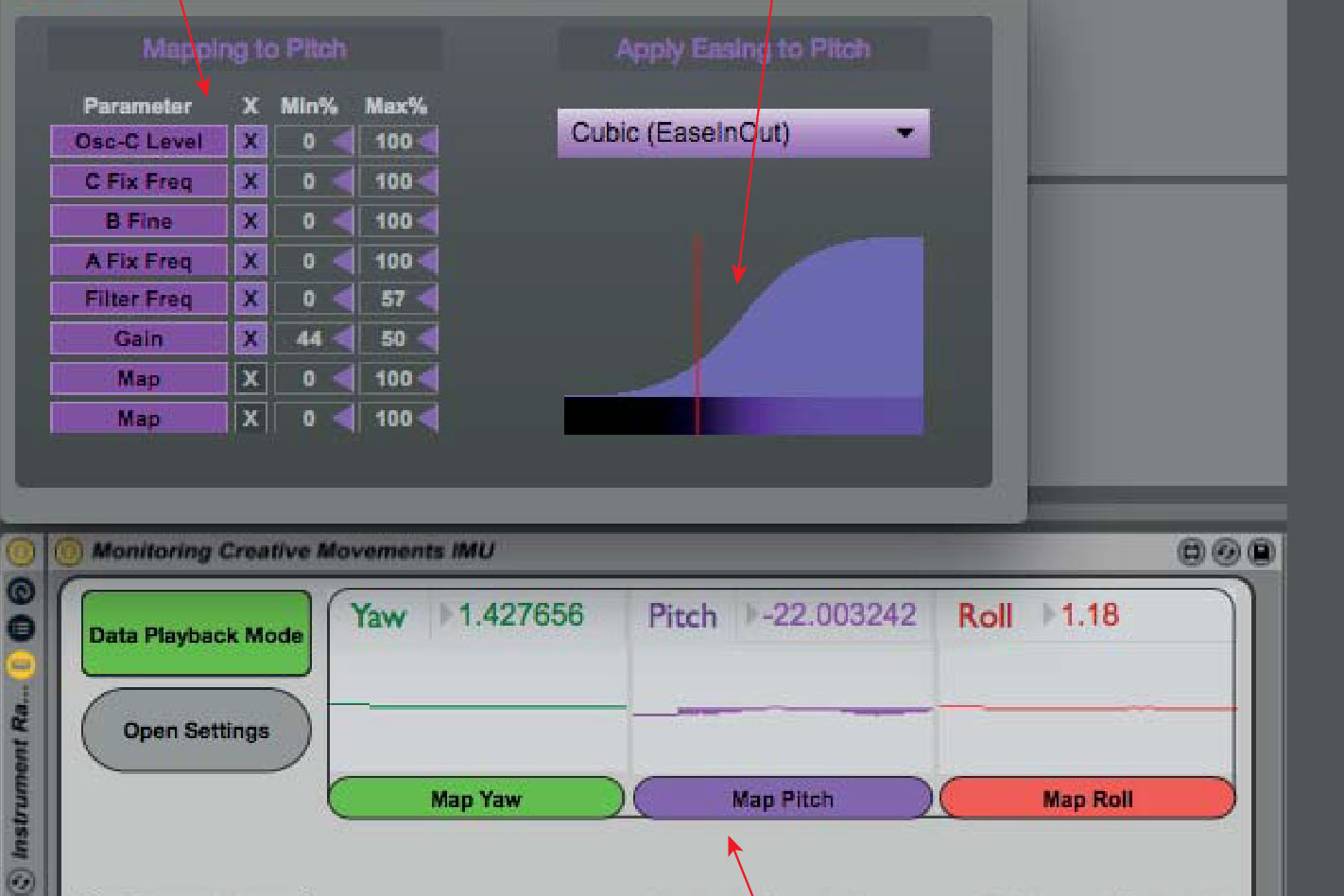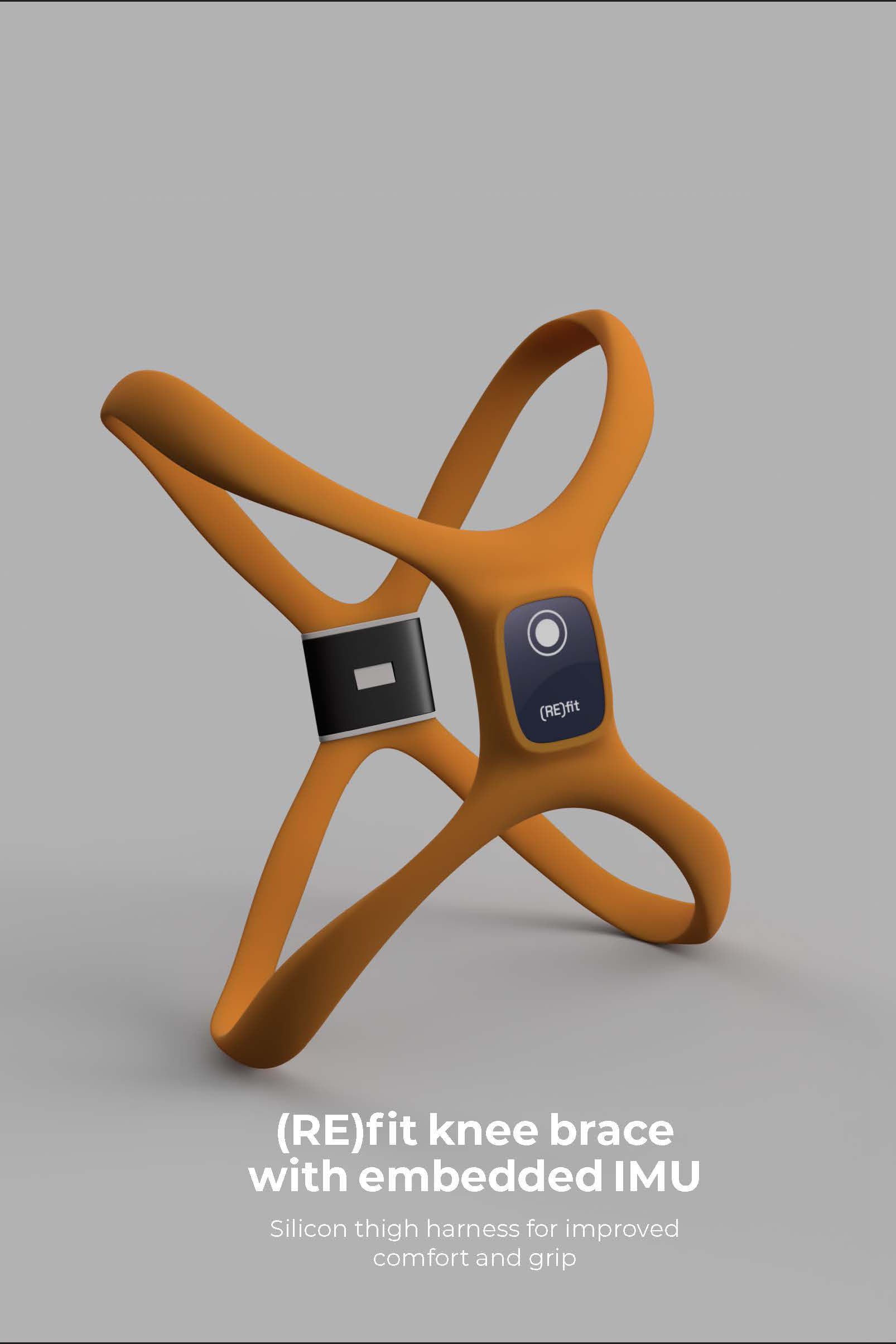Hybrid Futures
Garment-based movement sensing for improved rehabilitation
Wearable Biometrics
Studies have shown that when combining on-body inertial sensing units (IMUs) with dedicated algorithms, the detection of key movement events is possible. The use of one sensor and its data to determine events in other regions of the body, such as a key moment in a footstep, suggests a future for small form factor sensing and machine intelligence; as this type of embedded sensing into garments creates a non-intrusive and effective means of movement detection and awareness. Ultimately this provides unique personal spatiotemporal information to aid patients in their rehabilitation programs.
This study comprises the physical design of the sensing technology, the means by which it is embedded into a compression-style garment and the development of the detection algorithms. These physical and computational prototypes will be evaluated in a biomechanics testing lab to establish the efficacy of the sensing and algorithmic method for walking event detection. The aspiration for this study is to develop sensing technologies embedded into garments and coupled to earbud-style headphones providing Continuous Auditory Feedback (CAF) to improve the engagement and efficacy of personal rehabilitation programs.



